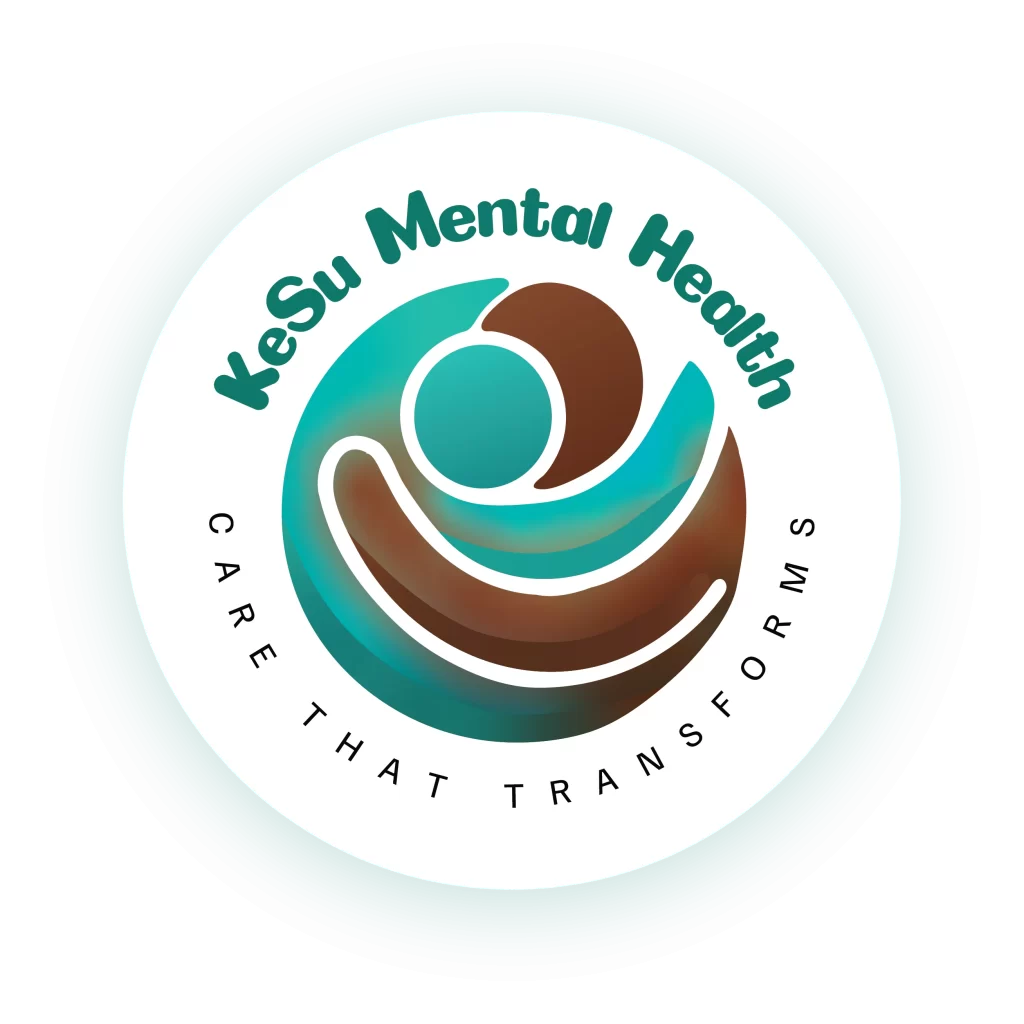Eating disorders are serious mental health issues. They can affect anyone, no matter their background. Age and gender do not matter. Looking after someone who struggles with their problems requires a challenging effort. Your confusion leaves you without any direction on what assistance to provide.
We will break down how to help someone with an eating disorder into simple, actionable steps.
We will look at whether anorexia is a disability. Also, we will share ways to overcome food addiction. Let’s build a protected and supportive direction that unites us all.
Eating disorders can be isolating. We provide caring support and expert guidance at KeSu Mental Health. Contact us today.
What Are Eating Disorders? More than Just Food
Eating disorders are not about vanity, but serious mental health struggles. Tied to emotions, self-image, and coping mechanisms, these struggles are all-consuming. Here are the most common culprits:
- Anorexia: The unrelenting force of extreme food avoidance.
- Bulimia: Cycles of bingeing and purging.
- Binge Eating Disorder: Eating large amounts quickly (often in secret).
Eating disorder thoughts can trap the mind in a web of guilt, fear, and shame. Picture this: “If I indulge, I’m a failure.” To lend a hand to someone battling this shadow, you must first grasp the depths of their struggle.
Spotting the Signs: When to Step In
Watch for these red flags:
- Avoiding meals: Someone eating either alone or avoiding family dinners.
- Extremely concerned about weight: talks a lot about diets, calories, and “being fat.”
- Mood swings: Check for anger, worry, or withdrawal during meals.
If you spot these indicators, react with empathy rather than judgment.
Starting the Conversation: Dos and Don’ts
People fear discussing eating disorders. However, not talking about them can lead to worse consequences. To create a safe space for someone facing this challenge, follow these steps:
DO:
- Choose a quiet time: Avoid meal times or rushed moments.
- Use gentle language: “I notice you’re struggling. Can I help?”
- Listen more than you speak: Let them share without interruptions.
DON’T:
- Blame or shame: Avoid phrases like, “Why can’t you just eat normally?”
- Compare their struggles: “My friend got over this quickly—why can’t you?”
Is Anorexia a Disability? Understanding Legal and Emotional Support
Anorexia can be a disability. It disrupts daily life and leads to health issues. It’s bad for the heart and bones. It also makes it hard to focus. The condition qualifies for accommodations in some workplaces and schools.
How to advocate:
- Research local disability laws or mental health policies.
- Suggest that they visit an eating disorder psychiatrist for medical help.
What Causes Food Addiction? Breaking the Cycle
Food addiction comes from emotional problems like stress, loneliness, and trauma. These issues can lead to binge eating and a strong focus on food. Dealing with food addiction takes patience, not punishment.
Support strategies:
- Distract together
- Suggest a walk, movie, or game when cravings hit.
- Create a safe food environment
- Store trigger foods in private areas.
- Celebrate progress
- Acknowledge any small achievements, including proper meal consumption or therapy attendance.
The Role of Professional Help: Therapists and Counselors
Recovery is a challenge to handle unaided. Therapists provide patients with healing tools. Counseling for eating disorders helps patients create a safe space. In this space, they can talk about their emotions. Counseling teaches life skills and useful knowledge.
How to encourage professional care:
- Help them research: Look up “eating disorder counseling near me” together.
- Offer to join sessions: Say, “Can a person bring a friend to therapy? I’ll go if you want.”
Supporting Mealtimes: Helping Someone Eating Safely
Meals can be scary for someone with an eating disorder. Here’s how to reduce the stress:
- Make peaceful habits: Play gentle music or light a calming candle during meals.
- Banish food policing: Avoid remarks like, “You’re eating too much or too little.”
- Foster connection: Spark conversations about their day, not just the food.
Overcoming Food Addiction: Small Wins Add Up
Conquering food addiction isn’t about perfection. It’s about progress. Talk to loved ones about these insights.
Capture your thoughts
Log emotions before and after meals.
Cherish your feelings
Remember, “One meal doesn’t define my worth.”
Connect with others
Groups like Overeaters Anonymous offer support and understanding.
Handling Setbacks: Staying Patient during Recovery
There is no one straight road to recovery. Your loved one could have bad days as well as pleasant ones.
How should one respond in front of obstacles?
- Stay calm: Said another way, “I’m here, no matter what.”
- Review your objectives: Ask, “What kept you feeling stronger last month?”
- Steer clear of shame: never say, “You’re letting everyone down.”
How to Help Yourself While Supporting Others
From an empty pitcher, you cannot fill a glass. Taking care of someone with an eating problem can be rather demanding.
Self-care strategies:
- Draw the line: It’s perfectly okay to say, “I need a moment.”
- Seek solace: Open up to a therapist in a space free of judgment.
- Reach out: Connect with fellow caregivers through a support group for shared strength.
Let’s Conclude: How to Help Someone with an Eating Disorder
Caring for someone with an eating problem needs love and courage. It also takes time. Recovery is slow, but every step counts. Remind your loved one: “You’re stronger than you think.”
You can heal with the right support. Seek help from an eating disorder psychiatrist. Use coping strategies for food addiction. Trust a solid support network. You’re not alone in this journey.
FAQs
Q. Which of these signs means that someone needs a psychiatrist for eating disorders?
Avoid leaving meals out, changing your weight dramatically, or discussing how you feel about food because of guilt or shame.
Q. What are some of the best ways to help?
- Listen without judging.
- Encourage them to try therapy.
- Avoid comments about their bodies or eating habits.



No comment